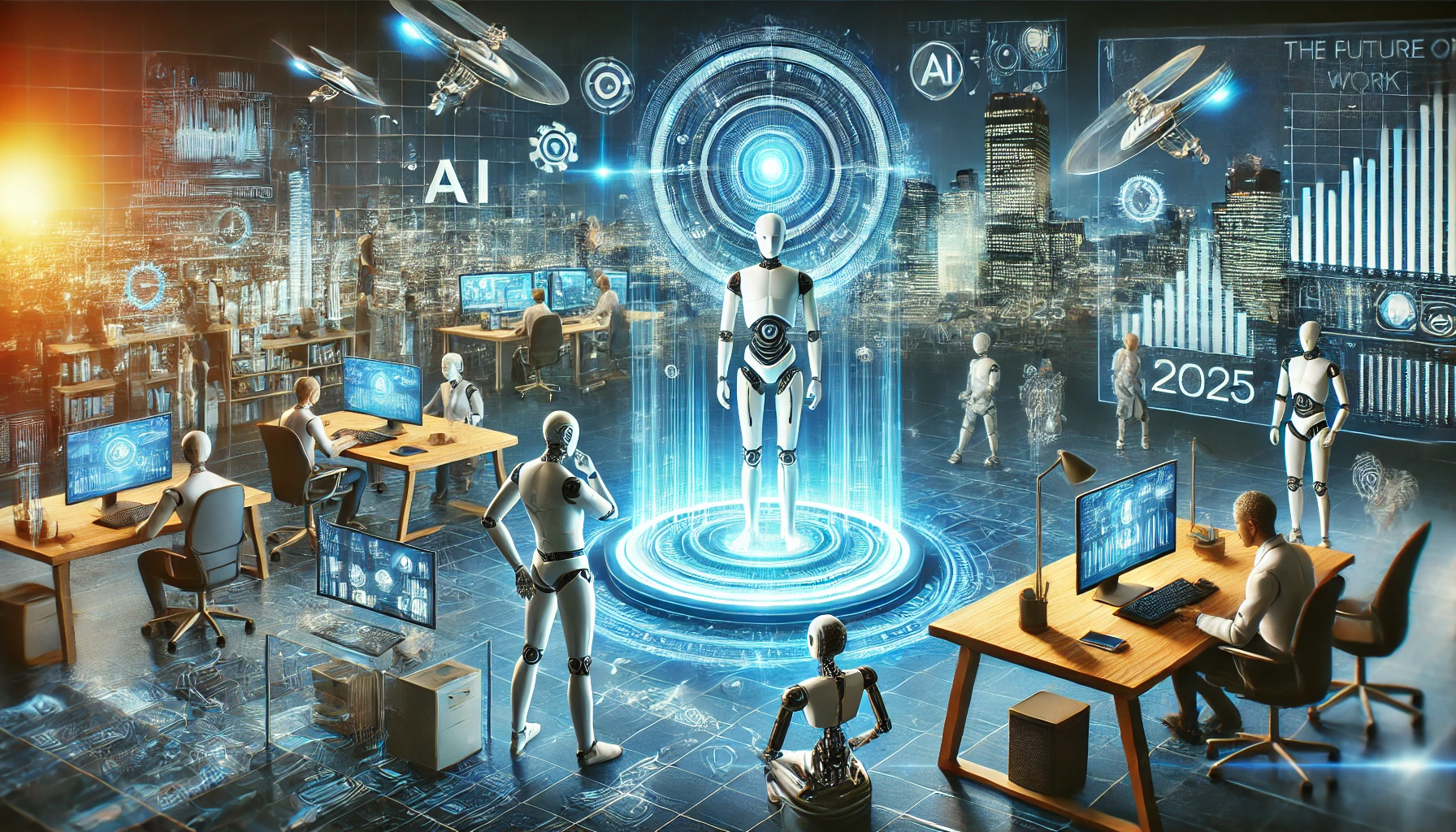AI & The Future of Work: What to Expect in 2025
Artificial Intelligence (AI) is no longer a futuristic concept—it's shaping industries and redefining the way we work today. With rapid advancements in machine learning, automation, and AI-driven decision-making, businesses worldwide are integrating AI into their operations. But with these advancements come pressing questions:
Will AI replace human jobs?
How will AI impact different industries?
What can businesses and employees do to prepare for the AI-driven future?
AI and Automation: The End of Jobs or a New Beginning?
A major concern surrounding AI is its potential to replace human jobs. While automation does eliminate repetitive and manual tasks, it also creates new opportunities by allowing employees to focus on high-value work.
🔹 Jobs at Risk: Data entry, customer service chatbots, manufacturing, and administrative support.
🔹 Jobs in Demand: AI ethics specialists, data scientists, automation engineers, and AI trainers.
Rather than replacing jobs entirely, AI is expected to augment human capabilities, leading to more efficient workflows and higher productivity.
Will AI Replace Human Jobs Completely?
The biggest misconception about AI is that it will eliminate all human jobs. In reality, AI will replace tasks, not entire professions. Jobs that require critical thinking, creativity, leadership, and emotional intelligence will continue to be in demand.
Instead of competing with AI, employees can focus on upskilling in areas like:
✅ AI & Machine Learning Fundamentals
✅ Data Analytics & Cybersecurity
✅ Digital Marketing & Automation Tools
✅ AI Ethics & Responsible AI Usage
By embracing AI, companies and workers can adapt, innovate, and stay competitive in an evolving job market.
How Businesses & Employees Can Prepare for an AI-Driven Future
For Businesses:
✔ Invest in AI training programs for employees.
✔ Implement AI responsibly while maintaining human oversight.
✔ Focus on AI-human collaboration rather than full automation.
For Employees:
✔ Learn AI skills through online courses (e.g., Python, machine learning).
✔ Stay updated on industry trends and automation tools.
✔ Focus on creative, strategic, and people-centric skills.
AI is set to revolutionize multiple industries in 2025, enhancing efficiency, accuracy, and innovation across various sectors. In healthcare, AI-powered diagnostic tools are improving early disease detection, while robotic surgeries and virtual assistants are reducing medical errors. The finance and banking sector is leveraging AI-driven fraud detection systems for secure transactions, robo-advisors for smarter investments, and chatbots for enhanced customer service. Meanwhile, retail and eCommerce are transforming with AI-driven recommendation engines that personalize shopping experiences, automated inventory management, and AI-powered chatbots improving customer interactions. Marketing and content creation are also being reshaped as AI tools like ChatGPT and DALL·E assist with content writing and graphic design, while predictive analytics help businesses target the right audience. Lastly, manufacturing and logistics are experiencing increased automation with AI-driven robots on assembly lines, predictive maintenance reducing downtime, and AI optimizing supply chain management for faster and more efficient deliveries. As AI continues to advance, these industries will witness unprecedented transformation, making businesses more agile, efficient, and customer-centric.
